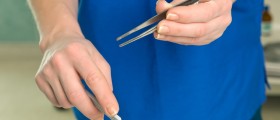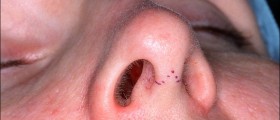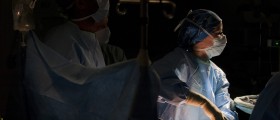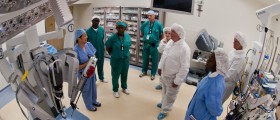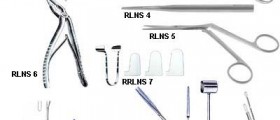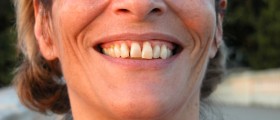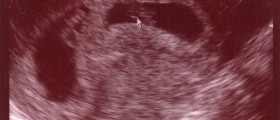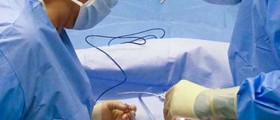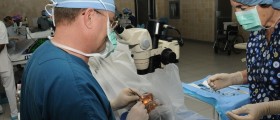I highly recommend a second opinion when you are having turbinate reduction or deviated septum. I did and what a difference it made. First doctor who I didn't end up going with stated I had a deviated septum and enlarged
Turbinates and when I looked at the authorization from the insurance it stated I was getting nose reconstruction from the inside I said What?? Well nurse tried to explain it away saying they just request more cpt codes just in case. Ok not true because I am a physician as well so I knew something was up. After fate stepped in and this doctor had to cancel my surgery twice. My primary care doctor sent me for a second opinion not only did this doctor tell me I didn't have a deviated septum but the only thing I needed was a turbinoplasty and it would only take 15 to 30 mins. He used the microdebrider technique which is more effective in the long run. He didn't use packing at all. I was in no pain after the procedure had mild pain and was sent home afterwards with gauze to tape on my nose to catch the mucous and bleeding for 24 hours. It's been 24 hours I feel great still minor bleeding on gauze but now using saline spray to clean nose. I can breathe through my nose great. Do your research and get a second opinion.
Turbinates and when I looked at the authorization from the insurance it stated I was getting nose reconstruction from the inside I said What?? Well nurse tried to explain it away saying they just request more cpt codes just in case. Ok not true because I am a physician as well so I knew something was up. After fate stepped in and this doctor had to cancel my surgery twice. My primary care doctor sent me for a second opinion not only did this doctor tell me I didn't have a deviated septum but the only thing I needed was a turbinoplasty and it would only take 15 to 30 mins. He used the microdebrider technique which is more effective in the long run. He didn't use packing at all. I was in no pain after the procedure had mild pain and was sent home afterwards with gauze to tape on my nose to catch the mucous and bleeding for 24 hours. It's been 24 hours I feel great still minor bleeding on gauze but now using saline spray to clean nose. I can breathe through my nose great. Do your research and get a second opinion.
Loading...
Can you tell us the medical name for the procedure? Where you had it done? and if the effects are still good? Who was the doctor and where? Thanks for any info. My son is suffering from giant turbinates and the radiofrequency didn't work - came back in less than 2 years even bigger than before. Thank you.
Loading...
Not sure if anyone is still following these but I'm having my adenoids removed and a terbinates reduced in a couple weeks.
I'm super nervous about it and just wondering if it did end up helping you breathe/sleep better after?
I'm super nervous about it and just wondering if it did end up helping you breathe/sleep better after?
Loading...
Where did you have procedures done? as I am looking at a similar surgery but am on board with the “non-surgical“ seems hard to fine that’s why am asking
Loading...
I had the turbinoplasty and septoplasty 5 days ago and have been miserable since. After breaking my nose three years ago, I suffered from chronic sinusitis (three infections just this year). Antibiotics help for infections but make me super sick so I elected for the surgery. Right away my throat was super irritated from the intubation tube. That only lasted about a day. The bleeding, although not terrible, last a couple days and then the sinus pressure and congestion returned with a vengeance. Post-nasal drip has not been relieved and that often makes me nauseous. The roof of my mouth is also sore. Hard to explain...it's not the skin that hurts. Feels like a knife stabbed down into the roof of my mouth via my nasal cavities. Hurts most when I bite down to eat. I'm constantly shooting saline up my nose and it doesn't seem to help. I have my follow-up appointment this afternoon and hoping the doc tells me this is all normal. Although I have my doubts reading this forum.
Loading...
Thanks very much for sharing, Kate. Writing this is in part a therapy for me.... yeah...! I'm scheduled for a bilateral turbinate reduction procedure in just over 60 hours' time. Incidentally, many parts of your post truly resonate with me already. For instance, my surgeon told me at my last consultation that the procedure should achieve up to 90 (ninety!) percent improvement in my breathing difficulties. Now, if he mentions even 25% improvement when I enter the theater for my, I'd just shrug it off - thank's to the heads up from you. Earlier today, the Anesthetist's assistant mentioned that I may be charged additional fees (I'm a self-pay patient) if additional anesthesia needs to be administered beyond the 45 minutes currently booked for me by the surgeon. Incidentally, because I had subconsciously had my mind stuck on the doctor's (possibly passing and exaggerated) comment during my last visit that its a simple 20-minute procedure, the message gave my first slight scare. Truth be told, my biggest fear is related to not waking up or developing a nervous malfunction after the procedure (in reaction to general anesthesia). I even indicated a strong preference for local anesthesia but the doctor impressed on me to settle for general, in order for the procedure to be nice and easy for him (and his team?).
As soon as I had the chance, I came back to read your post afresh; and thoroughly (I only skimmed through the first time I came across your post - last week). And I dare say I'm now doubly emboldened to face up to it with virtually no anxiety - at least from this point. I'd be hoping for your kind of out come (perhaps better, lol!); and will simply trust the doctors to be masterly while they are at it and I remain unconscious. I'd man up to the post-procedure pains that you described (Hggrrhhh! HUh!) and will look forward to find as much joy in flushing the 'yawky' stuff down my nose - but really hope I won't have blood draining down my throat (the though of it already makes me cringe!). Anyway, I hope to come back here in a few days or weeks to share my own experience. I'd be drawing inspiration for that from you. Fingers crossed. Wish me the best of luck!
Meanwhile I have not seen anyone mention how much their daily activities were impaired during the first week after the ops (excluding those with unfortunately sour experiences). We you able to drive, resume work etc with 4 days after the procedure. I am billed to have an 23-hour international travel next week Tuesday (four days after the procedure) and I remain very anxious on whether that will amount to undue risk. I have not called to airline to re-schedule because in response to my question about the complexity or simplicity of the procedure the doctor told me that last time that one could resume work the next day if it was necessary. Now that I understand that I should not wholly believe everything the doctors say before the D-day, it would have been nice to hear from one of those here who truly know where the shoe pinches.
As soon as I had the chance, I came back to read your post afresh; and thoroughly (I only skimmed through the first time I came across your post - last week). And I dare say I'm now doubly emboldened to face up to it with virtually no anxiety - at least from this point. I'd be hoping for your kind of out come (perhaps better, lol!); and will simply trust the doctors to be masterly while they are at it and I remain unconscious. I'd man up to the post-procedure pains that you described (Hggrrhhh! HUh!) and will look forward to find as much joy in flushing the 'yawky' stuff down my nose - but really hope I won't have blood draining down my throat (the though of it already makes me cringe!). Anyway, I hope to come back here in a few days or weeks to share my own experience. I'd be drawing inspiration for that from you. Fingers crossed. Wish me the best of luck!
Meanwhile I have not seen anyone mention how much their daily activities were impaired during the first week after the ops (excluding those with unfortunately sour experiences). We you able to drive, resume work etc with 4 days after the procedure. I am billed to have an 23-hour international travel next week Tuesday (four days after the procedure) and I remain very anxious on whether that will amount to undue risk. I have not called to airline to re-schedule because in response to my question about the complexity or simplicity of the procedure the doctor told me that last time that one could resume work the next day if it was necessary. Now that I understand that I should not wholly believe everything the doctors say before the D-day, it would have been nice to hear from one of those here who truly know where the shoe pinches.
Loading...
This is the same as my reply of about 10 minutes ago. Just that mid-way I began to see too many typos for my comfort, and I thought I should spare anyone who cares to read the errors.
"Thanks very much for sharing, Kate. Writing this is in part a therapy for me.... yeah...! I'm scheduled for a bilateral turbinate reduction procedure in just over 60 hours' time. Incidentally, many parts of your post truly resonate with me already. For instance, my surgeon told me at my last consultation that the procedure should achieve up to 90 (ninety!) percent improvement in my breathing difficulties. Now, if he mentions even 25% improvement when I enter the theater for my procedure, I'd just shrug it off - thank's to the heads up from you.
Earlier today, the Anesthetist's assistant mentioned that I may be charged additional fees (I'm a self-pay patient) if additional anesthesia is necessary and administered beyond the 45 minutes currently booked for me by the surgeon. Incidentally, because I had subconsciously had my mind stuck on the doctor's (possibly passing and exaggerated) comment during my last visit that it's a simple 20-minute procedure, the message gave me my first slight scare. Truth be told, my biggest fear is related to not waking up or developing a nervous malfunction after the procedure (in reaction to general anesthesia). I even indicated a strong preference for local anesthesia but the doctor impressed on me to settle for the general - in order for the procedure to be nice and easy for him (and his team?).
As soon as I had the chance, I came back to read your post afresh; and thoroughly (I only skimmed through the first time I came across your post - last week). And I dare say I'm now doubly emboldened to face up to it with virtually no anxiety; at least from this point. I'd be hoping for your kind of outcome (perhaps better, lol!), and will simply trust the doctors to be masterly while they are at it and I remain unconscious. I'd man up to the post-procedure pains that you described (Hggrrhhh! HUh!) and will look forward to find as much joy in flushing the 'yawky' stuff out of my nose - but really hope I won't have blood draining down my throat (the though of it already makes me cringe!). Anyway, I hope to come back here in a few days or weeks to share my own experience. I'd be drawing inspiration for that from you. Fingers crossed. Wish me the best of luck!
Meanwhile, I have not seen anyone mention how much her daily activities were impaired during the first week after the ops (excluding those with unfortunately sour experiences). Were you able to drive, resume work etc within 4 days after the procedure. I am billed to have a 23-hour international travel next week Tuesday (barely up to four days after the procedure) and I remain very anxious on whether that will amount to undue risk-taking. I have not called the airline to re-schedule because, in response to my question about the complexity or simplicity of the procedure, the doctor told me that one could resume work the next day if it was necessary. Now that I understand that I should not wholly believe everything the doctors say before the D-day, it would be nice to hear from one of those here who truly know where the shoe pinches
"Thanks very much for sharing, Kate. Writing this is in part a therapy for me.... yeah...! I'm scheduled for a bilateral turbinate reduction procedure in just over 60 hours' time. Incidentally, many parts of your post truly resonate with me already. For instance, my surgeon told me at my last consultation that the procedure should achieve up to 90 (ninety!) percent improvement in my breathing difficulties. Now, if he mentions even 25% improvement when I enter the theater for my procedure, I'd just shrug it off - thank's to the heads up from you.
Earlier today, the Anesthetist's assistant mentioned that I may be charged additional fees (I'm a self-pay patient) if additional anesthesia is necessary and administered beyond the 45 minutes currently booked for me by the surgeon. Incidentally, because I had subconsciously had my mind stuck on the doctor's (possibly passing and exaggerated) comment during my last visit that it's a simple 20-minute procedure, the message gave me my first slight scare. Truth be told, my biggest fear is related to not waking up or developing a nervous malfunction after the procedure (in reaction to general anesthesia). I even indicated a strong preference for local anesthesia but the doctor impressed on me to settle for the general - in order for the procedure to be nice and easy for him (and his team?).
As soon as I had the chance, I came back to read your post afresh; and thoroughly (I only skimmed through the first time I came across your post - last week). And I dare say I'm now doubly emboldened to face up to it with virtually no anxiety; at least from this point. I'd be hoping for your kind of outcome (perhaps better, lol!), and will simply trust the doctors to be masterly while they are at it and I remain unconscious. I'd man up to the post-procedure pains that you described (Hggrrhhh! HUh!) and will look forward to find as much joy in flushing the 'yawky' stuff out of my nose - but really hope I won't have blood draining down my throat (the though of it already makes me cringe!). Anyway, I hope to come back here in a few days or weeks to share my own experience. I'd be drawing inspiration for that from you. Fingers crossed. Wish me the best of luck!
Meanwhile, I have not seen anyone mention how much her daily activities were impaired during the first week after the ops (excluding those with unfortunately sour experiences). Were you able to drive, resume work etc within 4 days after the procedure. I am billed to have a 23-hour international travel next week Tuesday (barely up to four days after the procedure) and I remain very anxious on whether that will amount to undue risk-taking. I have not called the airline to re-schedule because, in response to my question about the complexity or simplicity of the procedure, the doctor told me that one could resume work the next day if it was necessary. Now that I understand that I should not wholly believe everything the doctors say before the D-day, it would be nice to hear from one of those here who truly know where the shoe pinches
Loading...
Hello there. I'm not really sure how long ago this for existed but I thought I tried it on my own. I am two days did recovery from my most recent turbinoplasty, the standard SMR. I had it done 12 years prior along with septoplasty/ rhinoplasty and other ancillary debridement. It worked brilliantly for 12 years. However after that time the turbinates finally grew back. The original procedure also came with gauze packing which like everybody else was removed to some discomfort. I'm writing because the most recent procedure 2 days ago is having quite a different effect on me. There is no packing at all except for the small double gauze over the lip with the headgear. Unfortunately, my HMO and the doctor who performed the surgery are a bit of a factory. Sort of like at airport with one patient take it off of the others on the runway. There are limited recovery beds as well so they kind of get you up and out. All of my after surgery instructions were put in my pocket as I was sent on my way. I sleep with a CPAP machine that I had remembered was totally ineffectual 12 years prior. I had forgotten and remembered how incredibly disorienting it would be to try to sleep without it. That was a huge understatement. The doctor advised me to use the CPAP with humidifier turned up to full. But it was completely negligible. So being slightly altered I decided I was going to clear my nasal passages one way or another. What a massive mistake. I spent the first 12 hours blowing my nose incessantly and it wasn't until afterwards I read in the after visit summary absolutely do not blow your nose. I have been awake now for roughly two days while waking interstitially. As a boxing fan I am so ashamed at this ridiculous debacle. It every fight if a fighter has a broken nose first thing the corner tells his fighter isdo not blow your nose. What a wanke I am. Needless to say my nose is so impacted I thought it was going to blow my eardrums out. It's slowly but surely returning to stasis. I feel like Merdre Adele's at the stuffy nose can last for up to a month. It's the dependency on the CPAP and trying to get Eddie about asleep without it because I think the air pressure they also being flaming the newly traumatized area. This is a hard recovery. I'm really really praying hard for the ability to get through it. But hey, 12 years that's a long time for this process to hold. Would that wish happens again. Good luck all.
Loading...
I had my second turbinate reduction surgery last week, I also had it 5 years ago but in that time the turbinates grew back and my nose was really clogged up, probably 80% in my estimation. I was pretty miserable these last 3 or 4 years so I finally decided to give surgery another try. Plus, my septum was still deviated as well so the surgeon operated on that as well. I had to stay in the hospital overnight as I live alone so this was their policy. I didn't have a lot of pain, just a bloody nose which I immediately went into the bathroom and cleaned up as much as possible. The splints were taken out 6 days later and I can breathe better but I think I'm about 50% clogged now vs. 80% before surgery. Maybe it'll get better over time as it heals but I kind of doubt it, we'll see. I see the doctor for a followup in 3 weeks, if I'm still at 50% I wonder what he will suggest next. Right now I'm just happy I'm better than before if it goes back to 80% I'm not going to give up looking for a way to fix this because that was pretty horrible.
Loading...
This happened to me as well. I had 3 surgeries due to a lower antrostomy in the maxillary sinus. The surgeon told me that it's going to be a very minor 20min surgery and everything will be fixed. Since then I have had 2 more corrective surgeries which now led to complications, dryness of the sinuses, throat and ear problems. The surgeon is trying to brush me off saying that these are too many symptoms. I spent lots of money and I'm still trying to find an ENT surgeon who really wants to help. My mistake was to fully trust the surgeon who is considered to be the "best in the west" who just butchered my inferior turbinate telling my very candidly that I only have 50% of it and that shouldnt' be a problem. From a healthy person enjoying life and work I ended up for 2 years now being on LTD. Again, do not get any sinus,nose surgery only after you've got at least 3 opinions.
Loading...
I had a turbinate reduction yesterday on both sides. My Dr. said that mine were between moderately enlarged and severely enlarged. I have always had congestion issues - this turbinate thing was randomly noticed as a result of an unrelated head MRI I had had.
It was all so much easier than I expected.
I had the kind where they use a microwave thing to burn and create scar tissue.
1) first the doctor insert into each nose two 4-inch long narrow cotton strips with strings attached up my nose - soaked in some kind of pain killer. I expected this to hurt but it did not at all. I tasted a tiny bit of bitter in the back of my throat but it was no big deal and they had the saliva suction machine like at the dentist if I needed
2) wait for about 15-20 minute.
3) Doctor came back in to remove the pads (did not hurt at all), and to do the injection of the real pain-killer with a rather large-looking syringe. I expected this to hurt (i'm very sensitive to pain), but it did not at all. I was warned my heart would start racing when this stuff ran down my throat a bit, and that it would taste gross -- both happened but it was only uncomfortable, not painful.
4) Then he stuck his wire-like pointy tool into my nose and pressed a button that made a noise - presumably when the heat was doing the burning. It was totally not painful in any way - I kept waiting for the pain but there was none. I was warned that I might smell burning but I did not. The whole think was maybe 5 minutes on each nostril, maybe 5-6 pokes in different areas. I think there is an immediate reduction effect because he said my tissue was reacting/reducing very well.
5) Had some very slight bloodiness in my saliva, but very minor. Biked home. I took 800 mg of advil. Didn't have any pain or bleeding the rest of the day.
6) I could breath better right away and woke up this morning with both nostrils working at the same time.
7) Dr. says it should get even better over the next 2-3 months.
8) its possible that my tissue will be fine now, or also that it grows back and I have to get it done again or periodically. Hopefully not, but since it was not painful, only uncomfortable, i am fine with that as a tradeoff to breath better.
It was all so much easier than I expected.
I had the kind where they use a microwave thing to burn and create scar tissue.
1) first the doctor insert into each nose two 4-inch long narrow cotton strips with strings attached up my nose - soaked in some kind of pain killer. I expected this to hurt but it did not at all. I tasted a tiny bit of bitter in the back of my throat but it was no big deal and they had the saliva suction machine like at the dentist if I needed
2) wait for about 15-20 minute.
3) Doctor came back in to remove the pads (did not hurt at all), and to do the injection of the real pain-killer with a rather large-looking syringe. I expected this to hurt (i'm very sensitive to pain), but it did not at all. I was warned my heart would start racing when this stuff ran down my throat a bit, and that it would taste gross -- both happened but it was only uncomfortable, not painful.
4) Then he stuck his wire-like pointy tool into my nose and pressed a button that made a noise - presumably when the heat was doing the burning. It was totally not painful in any way - I kept waiting for the pain but there was none. I was warned that I might smell burning but I did not. The whole think was maybe 5 minutes on each nostril, maybe 5-6 pokes in different areas. I think there is an immediate reduction effect because he said my tissue was reacting/reducing very well.
5) Had some very slight bloodiness in my saliva, but very minor. Biked home. I took 800 mg of advil. Didn't have any pain or bleeding the rest of the day.
6) I could breath better right away and woke up this morning with both nostrils working at the same time.
7) Dr. says it should get even better over the next 2-3 months.
8) its possible that my tissue will be fine now, or also that it grows back and I have to get it done again or periodically. Hopefully not, but since it was not painful, only uncomfortable, i am fine with that as a tradeoff to breath better.
Loading...




